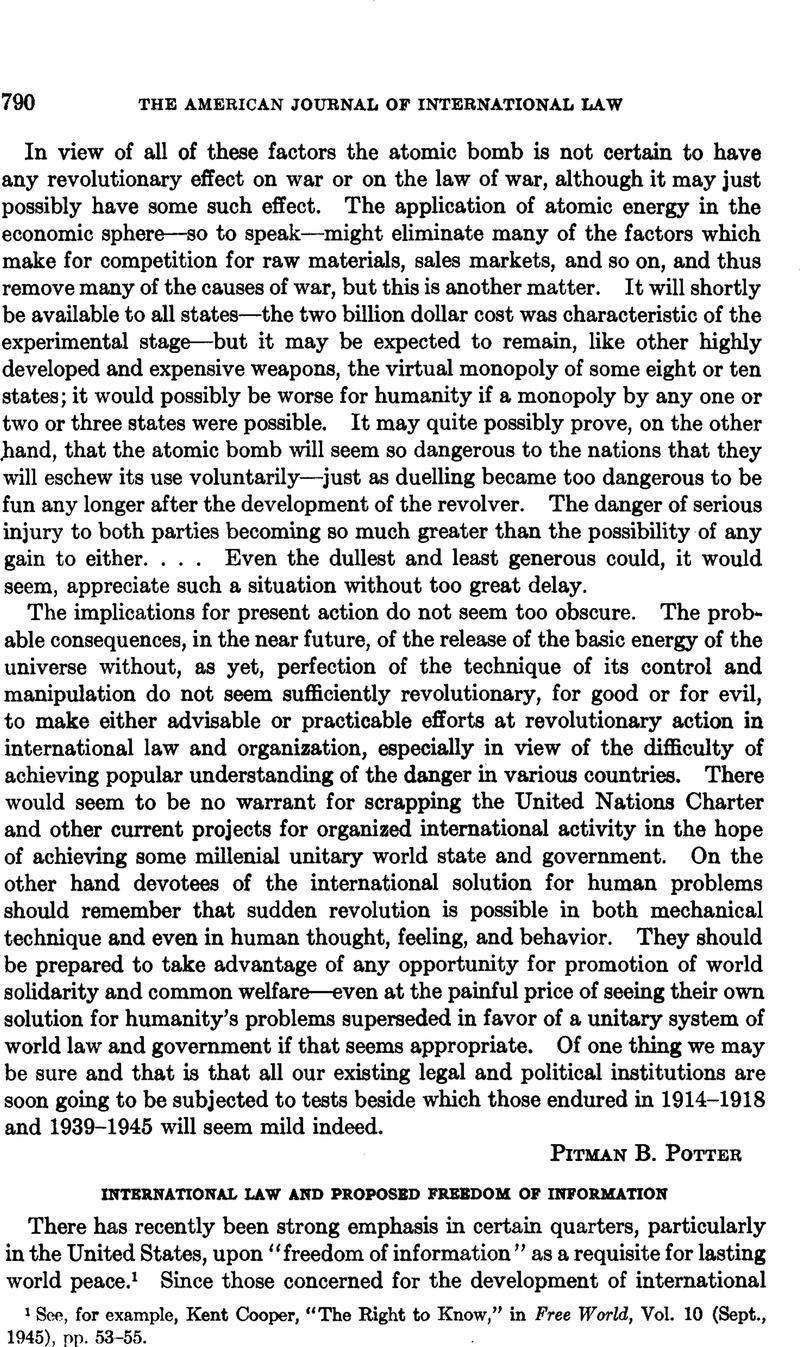Published online by Cambridge University Press: 25 April 2017

1 See, for example, Cooper, Kent, “The Right to Know,” in Free World, Vol. 10 (Sept., 1945), pp. 53-55.Google Scholar
2 The federal Constitution of Switzerland, while guaranteeing liberty of the press provides (Art. 55, par. 2) that les his eantonalea statuent lea mesures néceaaairea à la répreasion dea above… .
Article 125 of the Constitution of the Union of Soviet Socialist Republics provides that the citizens of the USSR are guaranteed by law freedom of the press. A Soviet reply to statements made by the executive director of the Associated Press in 1945 submitted, inter alia, that “ … Soviet democracy guarantees to the utmost a progressive form of freedom of the press,” and that “ … he is wrong who thinks freedom of press eliminates leadership and guidance… . The matter is not in control or guidance but in who is realizing it and in whose interests it is done“: article by N. Baltisky, in War and the Working Class, as reproduced in the Washington Post, Jan. 21, 1945, p. 6B.
3 See Preuss, Lawrence, “International Responsibility for Hostile Propaganda Against Foreign States,” this JOURNAL, Vol. 28 (1934), p. 649.Google Scholar
4 Raymond Christinger, Le développement de la presse et son influence sur la responsabiliti internationale de I'Etat, Lausanne, 1944, pp. 14-15.
5 Same, p. 23.
6 90 Cong. Rec. 8155, 8235; 58 Stat. (Pt. 2) 1119.
7 Final Act of the Inter-American Conference on Problems of War and Peace, Washington, 1945, pp. 69-70.
8 U. S. Department of State Bulletin, Vol. 13, No. 319 (Aug. 5, 1945), p. 159.
9 New York Times, Sept. 11, 1945, p. 22 (editorial based upon a survey of the situation in various countries). For a statement by Generalissimo Chiang Kai-shek as to the abolition within a specific time limit of the war-time censorship in China, see New York Times, Sept. 4, 1945, p. 3.
10 Washington Post, Aug. 23,1945, p. 11, and Aug. 27,1945, p. 7 (statement of Representative Clarence Brown).
11 New York Times, Sept. 9, 1945, Sec. I, p. 26. The resolution, it is reported, envisages adoption of measures by the nations separately and jointly “to develop unrestricted interchange of information between their peoples.“